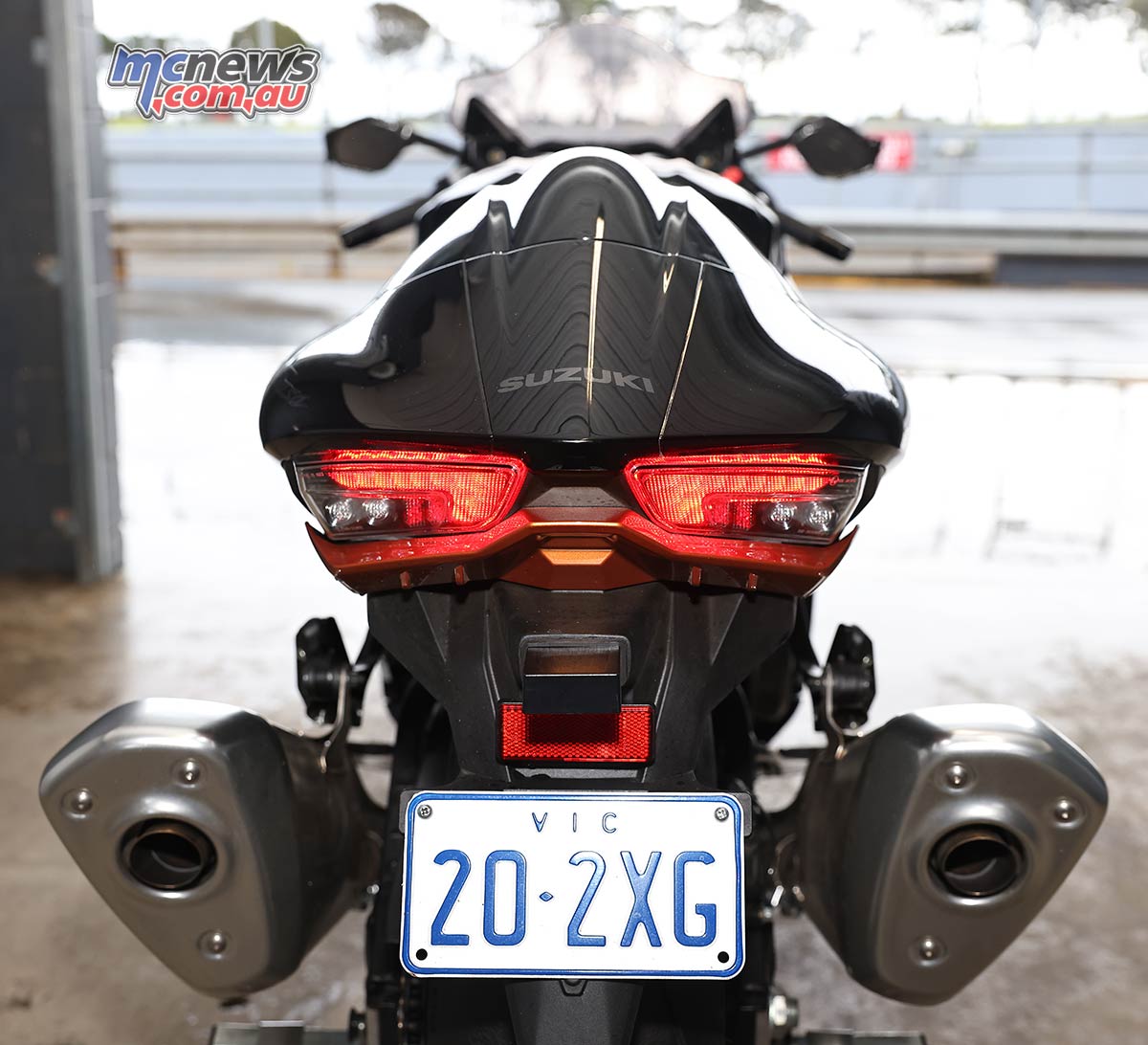Gen3 Hayabusa Tested
King Kong has returned. Despite the premature rumours of the big fella’s death, the ‘Busa is back. I managed to snag a bit of saddle time to get some impressions – and even rode it back to back with the Gen 2 machine it replaces.
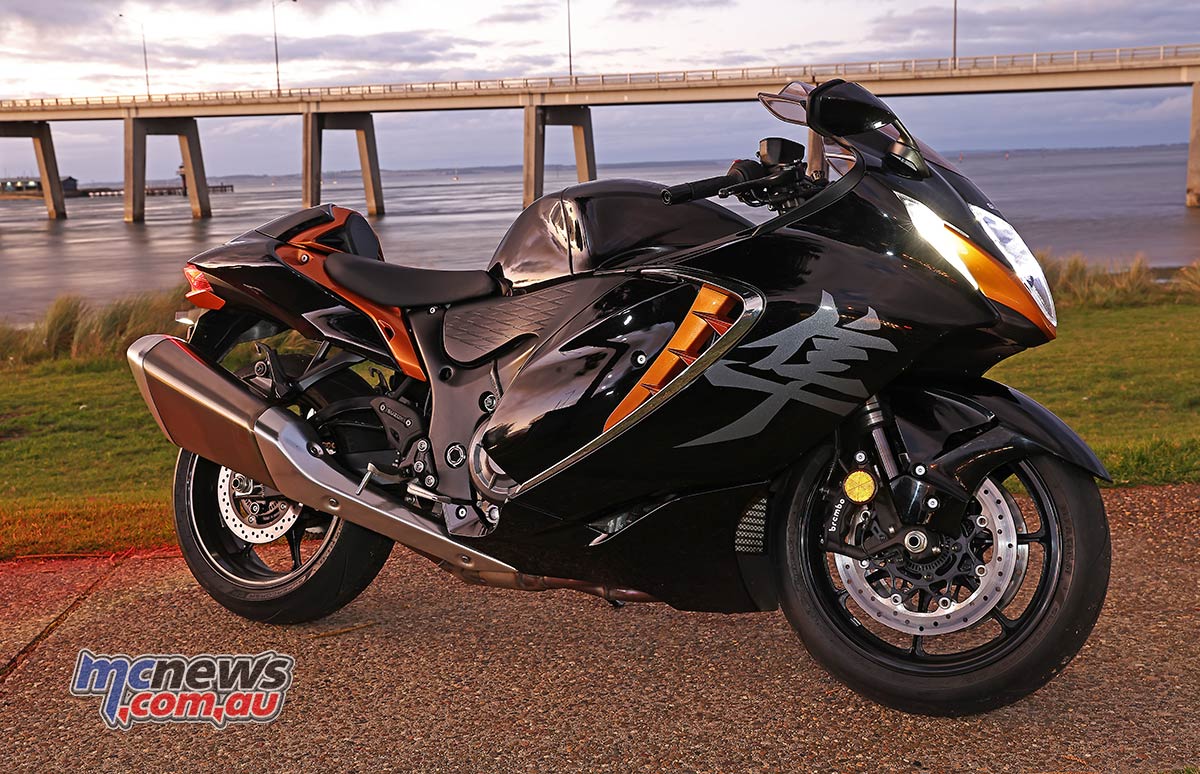
First up, lets talk the big news. Yes the spec sheet has a couple of numbers moving in the opposite direction to what we normally see. And of course, social media has lit up. Peak power and Torque are down by seven ponies and five Nm respectively compared to Gen 2, to 187 hp and 150 Nm. Weight is down by a couple of pies to 264 kg. But we all know that stat sheets can lie. In this case, the updated Euro 5 compliant donk has had a raft of changes from Gen 2 which is now what, 13 years old?
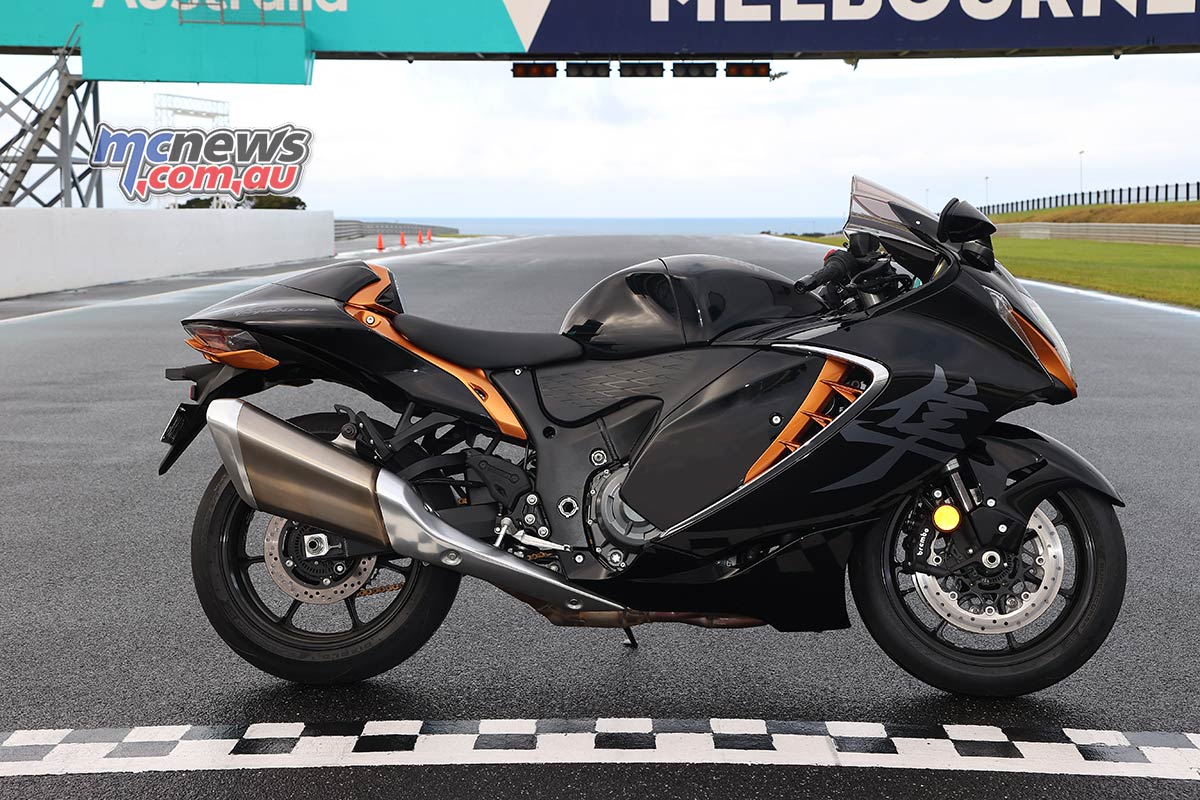
Numbers aside, I know from experience that many high-power engines that are fitted with new cylinder heads that boast latest generation combustion chamber design combined with more sophisticated electronic management systems are generally way better than their predecessors, as you would hope and expect!
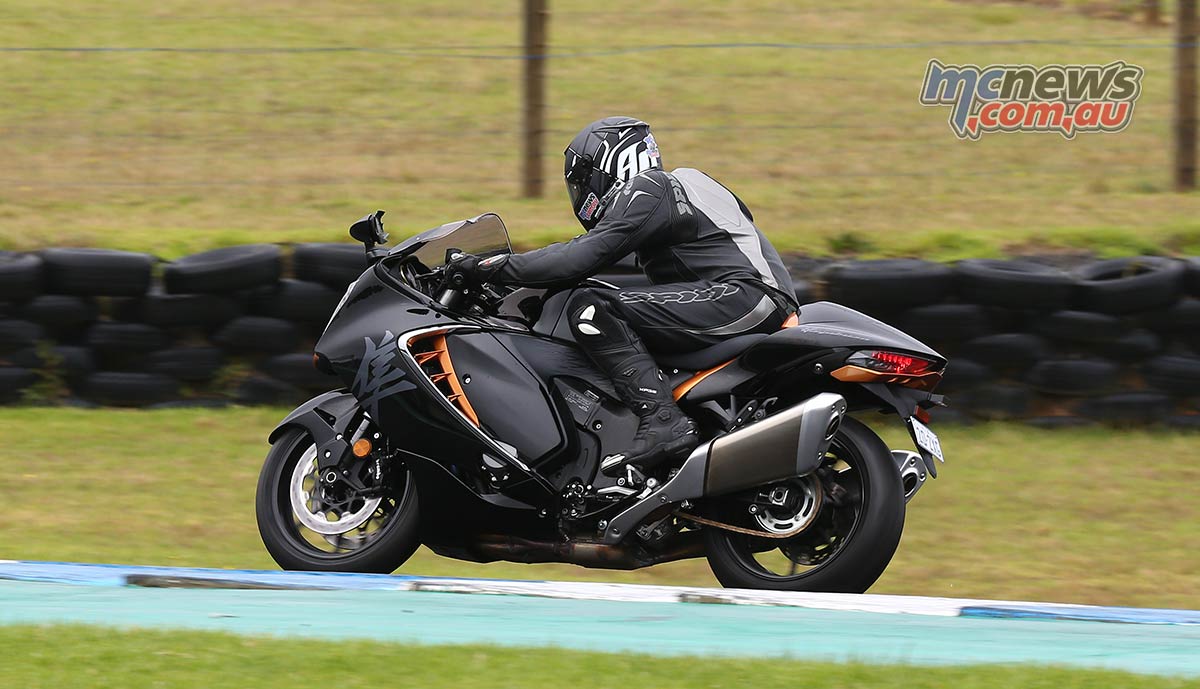
Anyway, what you need to know is that the focus has been on low to mid-range power and torque which is where you spend most of your time anyway. We didn’t get a chance to do roll-ons due to some drizzly Phillip Island weather, but my ass-ometer backs up the supplied power curve comparisons that say the new bike is comfortably up on torque from low to just past midrange where its back to line ball for a bit before falling slightly behind in the top 20 per cent. A much more usable, linear curve too. I know which one I prefer. Suzuki claim the new bike is faster to both 100 km/h (3.2 s v 3.4 s) and 200 km/h (6.8 s v 6.9 s) compared to the Gen 2, with quarter-mile times the same apparently. So, yeah. It goes alright…
Suzuki GSX1300R Hayabusa Generational Comparison
| Details | 1st Gen | 2nd Gen | New Hayabusa |
| Displacement | 1,298 cc | 1340 cc |
|
| Bore x Stroke | 81.0mm x 63.0mm | 81.0mm x 65.0mm |
|
| Compression ratio | 11.0:1 | 12.5:1 |
|
| Power | (129kW) 175PS/9,800rpm | (145kW) 197PS/9,500rpm | (140kW) 190PS/9,700rpm |
| Torque | 138Nm/7,000rpm | 155Nm/7,200rpm | 150Nm/7,000rpm |
| 0-200m time | 7.1 | 6.9 | 6.8 |
| 0-100 km/h time | 3.3 | 3.4 | 3.2 |
| Top speed (km/h) | 299 | 299 | 299 |
| Emissions | -/ | Euro 3 | Euro 5 |
| Fuel consumption | / | 17.6 | 14.9 |
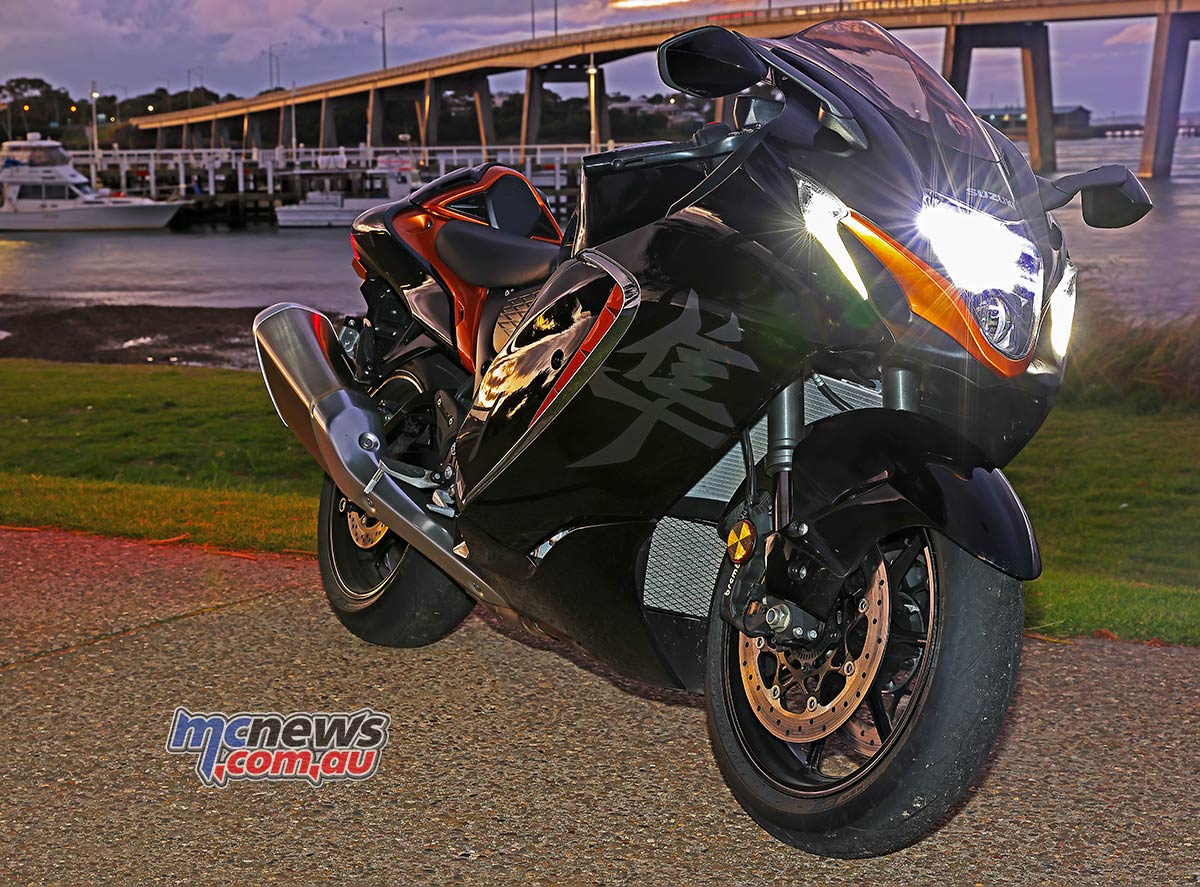
The second thing most people will talk about is the styling. In the metal, it looks great – somehow smaller than you expect. Sleeker lines do well to hide the bulk compared to the slightly chunkier lines of old. Unanimous opinion from all who checked it out at the track today agreed that it looked the biz. The Suzuki stylists have done well. It’s cleaner, more streamlined and less bulbous compared to the old bike and the headlight treatment brings it closer to the GSX-R family. I could personally go with something other than the chrome highlight on the side fairing.. but must admit, that it grew on me too.

Like Trev I’m a big fan of the analogue clocks. Initial impressions are that the electronics menu which appears in the centre TFT screen is not the most intuitive to use in the world, but it’s easy enough to swap between the three pre-set maps (A, B and C), and then scroll through three custom modes where you have full control over settings for power, TC, Anti Lift, Engine Breaking and Quick-shift settings. In the dry, I preferred a custom map with full power, TC and anti-lift set to around five, Engine Breaking off and the quick shift set to two (the more road oriented setting that’s a little smoother than one).
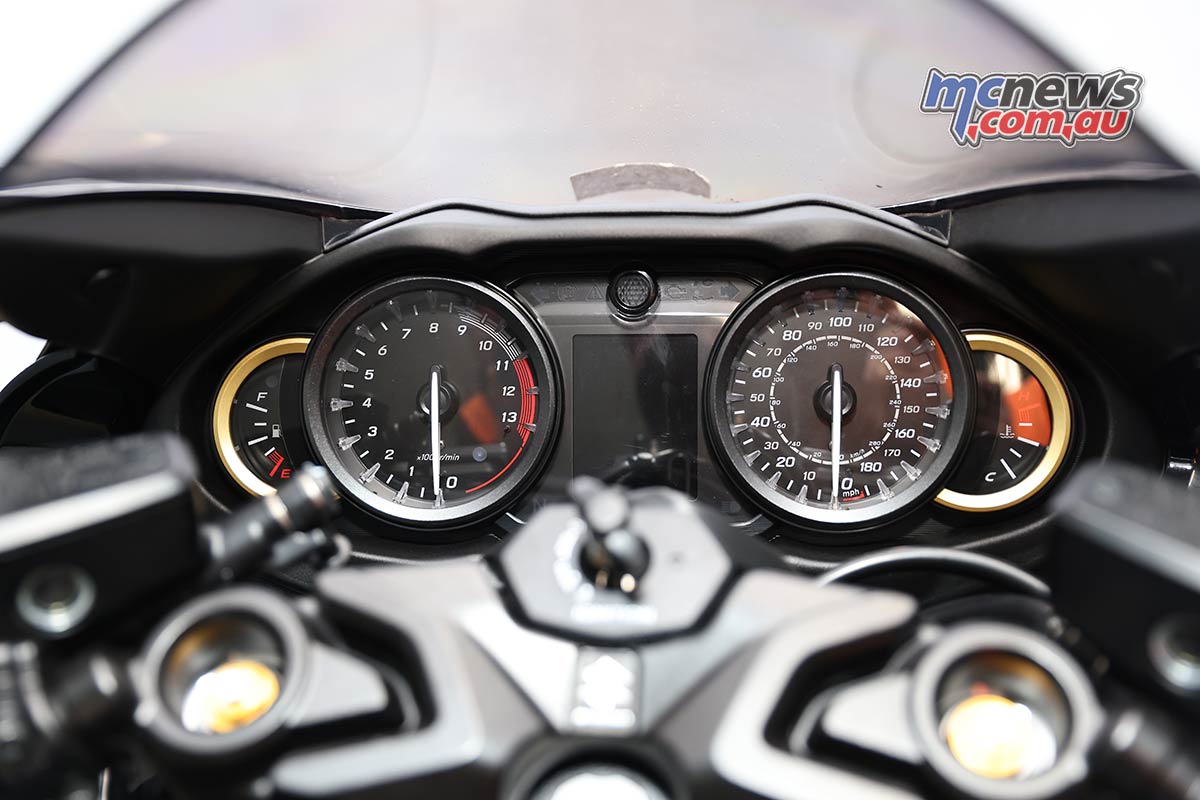
So what’s it like to ride? One word – Surprising. I’d probably prefer two words really, but I’m trying to cut down on expletives.

I’d not been lucky enough to ride a Hayabusa before the Aussie launch event. I’d only had the pleasure of following Trev as he painted lines in front of me on our annual high country run in the hills a few years back. I now know why he was grinning so much and wouldn’t give me the keys.
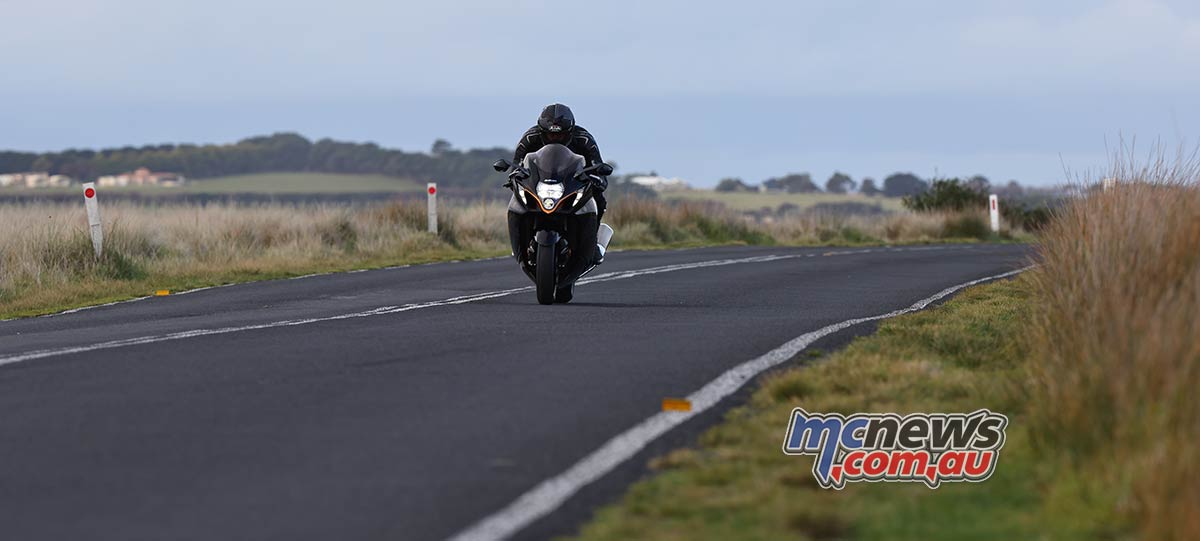
Within a kilometre of setting off on my first road ride, I actually said ‘holy shit it steers pretty well’ out loud, to myself. I dunno why I do that either, just go with it. It really does though. Anyone who hasn’t ridden one before will not believe how happily it changes direction and how eagerly it tips in. Somehow it hides its 264 kg very well. Just ignore that number. Comfortable reach and riding position, plenty of room to move – its more than pleasant to ride. And the suspension is super communicative (I’ll get back to that later)
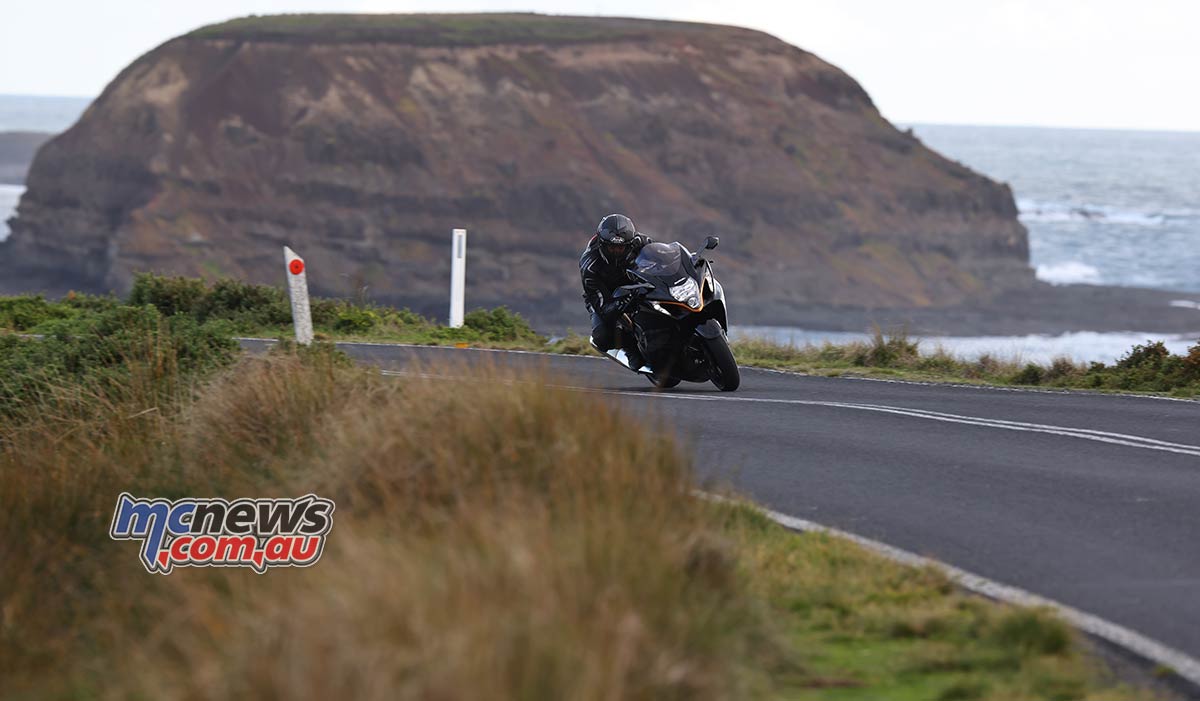
But that engine. Faaaaaaaaaaaaaarmer Jones’s tractor doesn’t pull like that. It’s like a turbine. Spooling up cleanly from as low as 2000 revs in top gear and just piling on the speed. There’s no ignoring it. It’s a monster. Exhaust note is nice and refined, with the dominant sound of gases getting the hell out of dodge. It’s almost turbo whoosh. Without the turbo.

We were lucky enough to run some laps at the Phillip Island circuit. The weather gods weren’t entirely cooperating, but I did get one ‘almost’ dry session in…
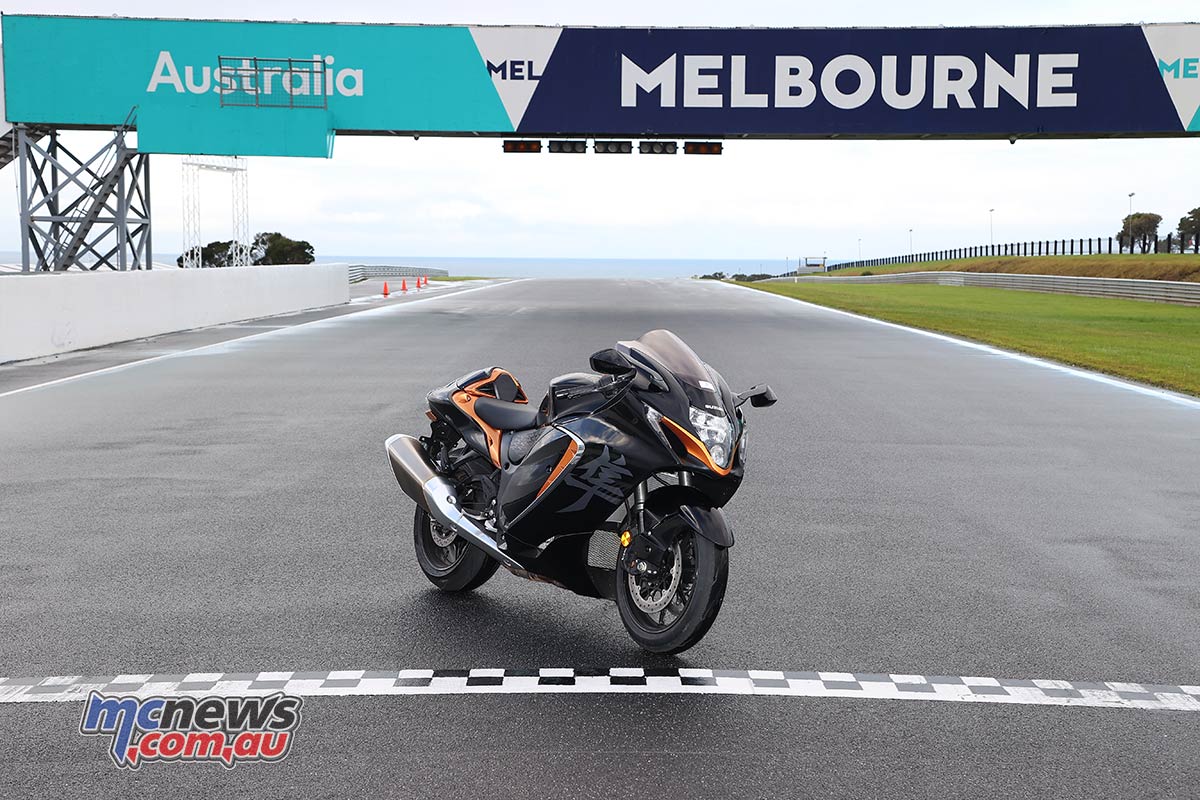
We started on the outgoing Gen 2 in the morning. On a fully wet track. In B mode. And I admit it was a little nerve wracking. Compared to the MY22 that I’d ridden the night before it felt stiff and heavy. And the suspension wasn’t nearly as communicative.
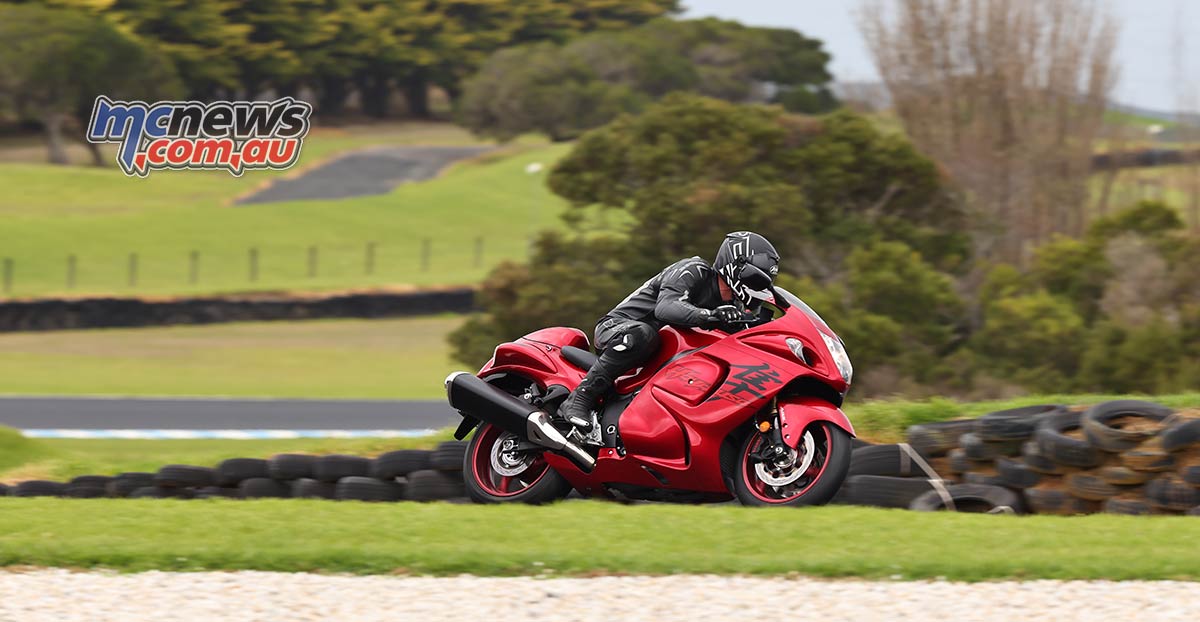
Then session 2 was on the new bike, also in B mode. On a track that was just starting to dry. The difference in feedback and confidence was chalk and cheese, not just because of the new six-axis Bosch IMU which seems to be the ducks nuts when it comes to TC and ABS control, but the suspension package as a whole was light years ahead. It’s running 43 mm KYB USD forks with 120 mm of travel up front and a fully adjustable KYB shock out the back. They’re both excellent. The stability was expected. The level of feedback wasn’t, considering there’s a fair amount of metal to keep under control…
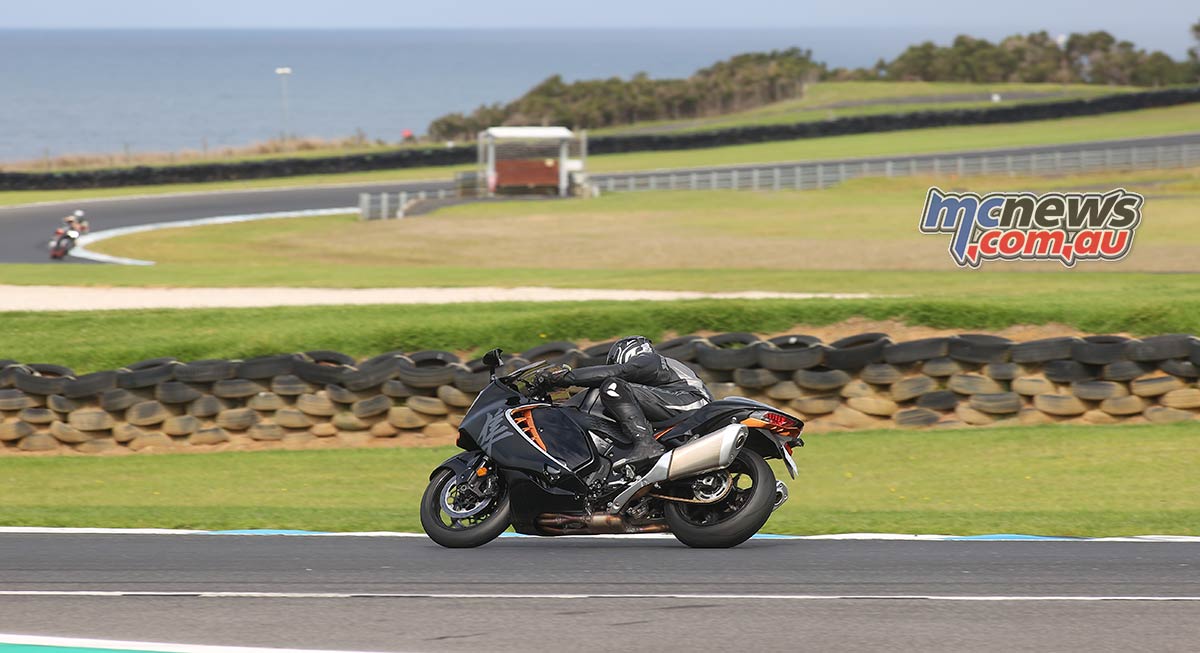
Brake-wise, the Brembo Stylemas that bite into 10 mm larger 320 mm discs up front are impressive too. Heaps and heaps of feel. And the bike positively sheds speed. While not really a benchmark, without trying too hard, I was out-braking plenty of track day punters on slick shod race bikes coming into turn-four. While giggling…
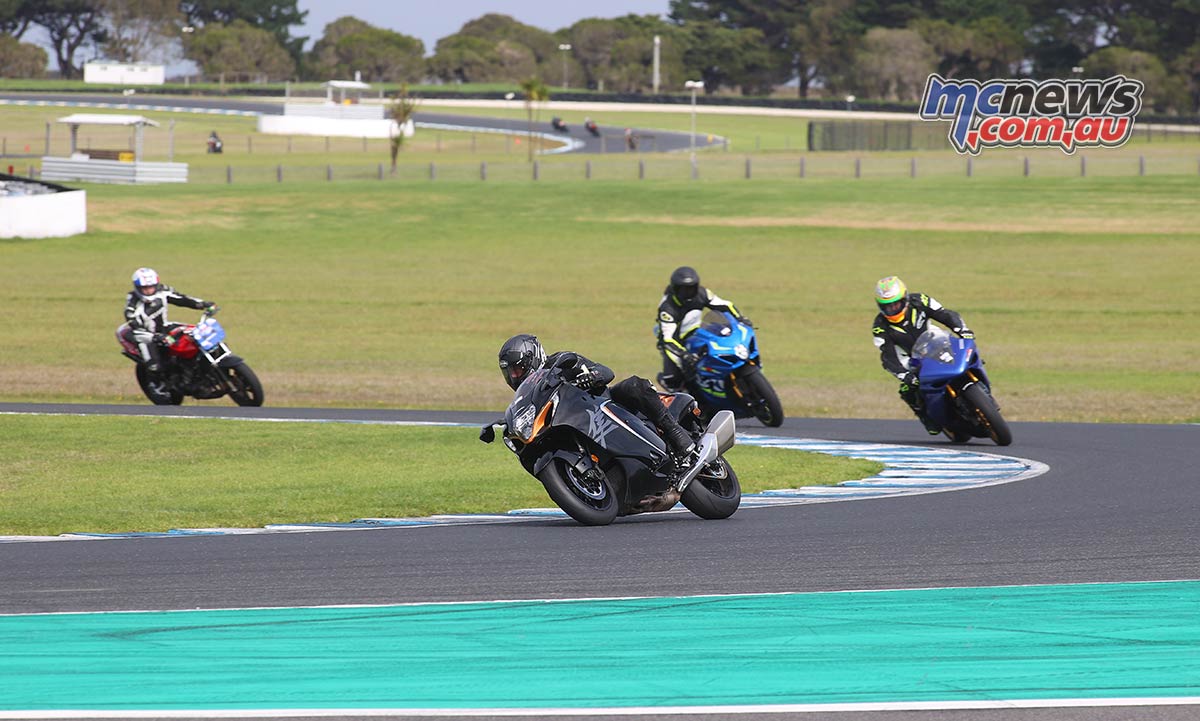
Session 3 was almost dry. Time to try the A mode. Gradually wicking things up to the point that I was getting the knee down… On a track that wasn’t fully dry. On road tyres. On 264 kg of Hayabusa…

Confidence? You bet. We weren’t out there to set lap times, we were out there to see how the bike went. With it being the only one in the country, I was very, very, very conscious not to throw it down the road… which is why I pulled into the pits in the fourth session. The rain had started coming down again and I caught myself playing around and sliding in the wet out of Southern Loop.. and Siberia.. and turn 11. Don’t be that guy Wayne… So I brought it back into the pits just before the rain started getting serious. And that was where our day ended as the rain kept coming down so we pulled the pin.
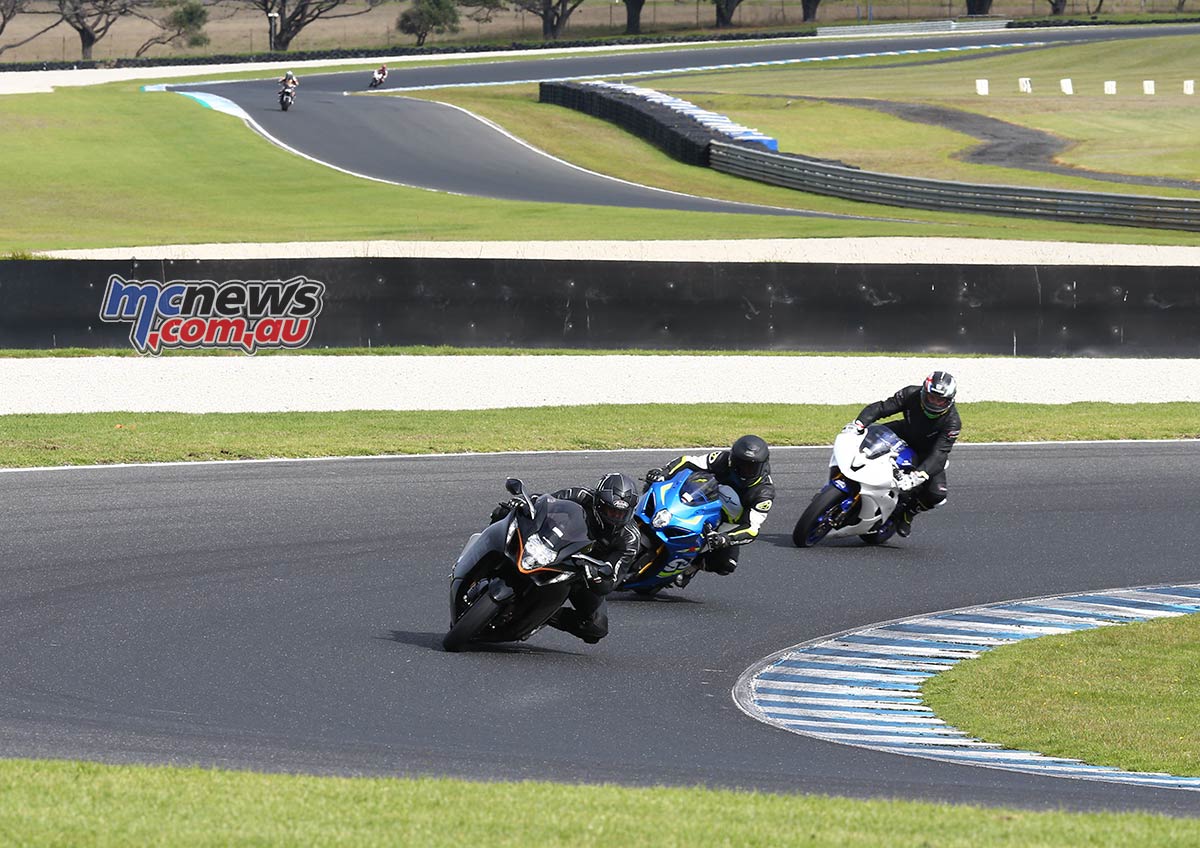
Overall impressions in what was a relatively short introduction ride? The new Busa is a missile. Forget the power stats. If big power is your thing, team Suzuki have a bike ready for you. It’s positively a torque monster, so smooth and composed. But it utterly surprises in terms of how well it can steer and stop for a big heavy bike. I was prepared for the engine. I wasn’t prepared for the rest of the package. Phenomenal.
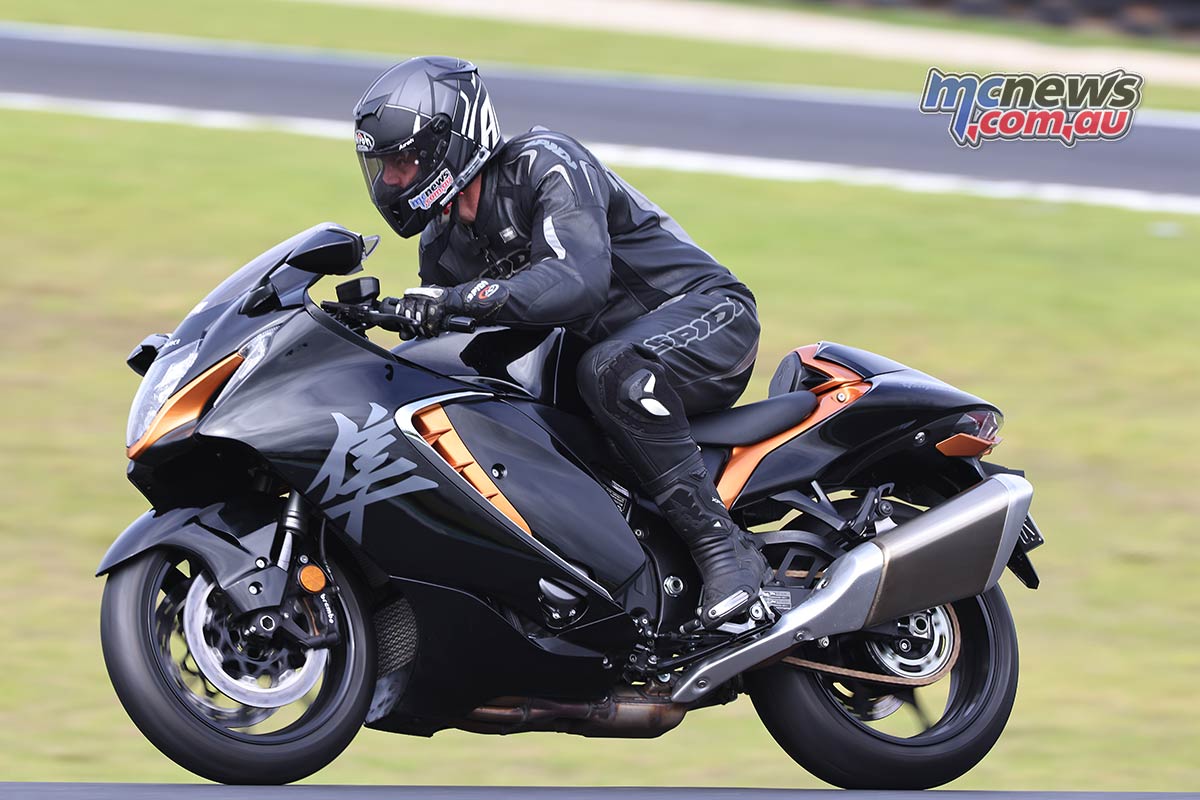
While it will be on sale in July 2021, it is referred to as a 2022 model by Suzuki, and is priced at $27,690 ride away.
| 2022 Suzuki GSX1300R Hayabusa Specifications | |
| Engine type | Four-stroke, liquid-cooled, DOHC, in-line four |
| Bore x stroke | 81.0 mm x 65.0 mm |
| Engine displacement | 1,340 cc |
| Compression ratio | 12.5:1 |
| Fuel system | Fuel injection |
| Starter system | Electric |
| Lubrication system | Wet sump |
| Transmission | 6-speed constant mesh |
| Rear Suspension | Inverted telescopic, coil spring, oil damped |
| Front Suspension | Link type, coil spring, oil damped |
| Rake / trail | 23° 00’ / 90 mm |
| Front Brakes | Brembo Stylema 4-piston, twin disc, ABS-equipped |
| Rear Brakes | Nissin, 1-piston, single disc, ABS-equipped |
| Front Tyre | 120/70/ZR17 |
| Rear Tyre | 190/50/ZR17 |
| Ignition system | Electronic ignition (transistorized) |
| Fuel tank capacity | 20.0 L |
| Overall Length | 2,180 mm |
| Overall width | 735 mm |
| Overall height | 1,165 mm |
| Wheelbase | 1,480 mm |
| Ground clearance | 125 mm |
| Seat height | 800 mm |
| Kerb weight | 264 kg |
| Available | Mid 2021 |
| Price | $27,690 Ride Away |
Source: MCNews.com.au

